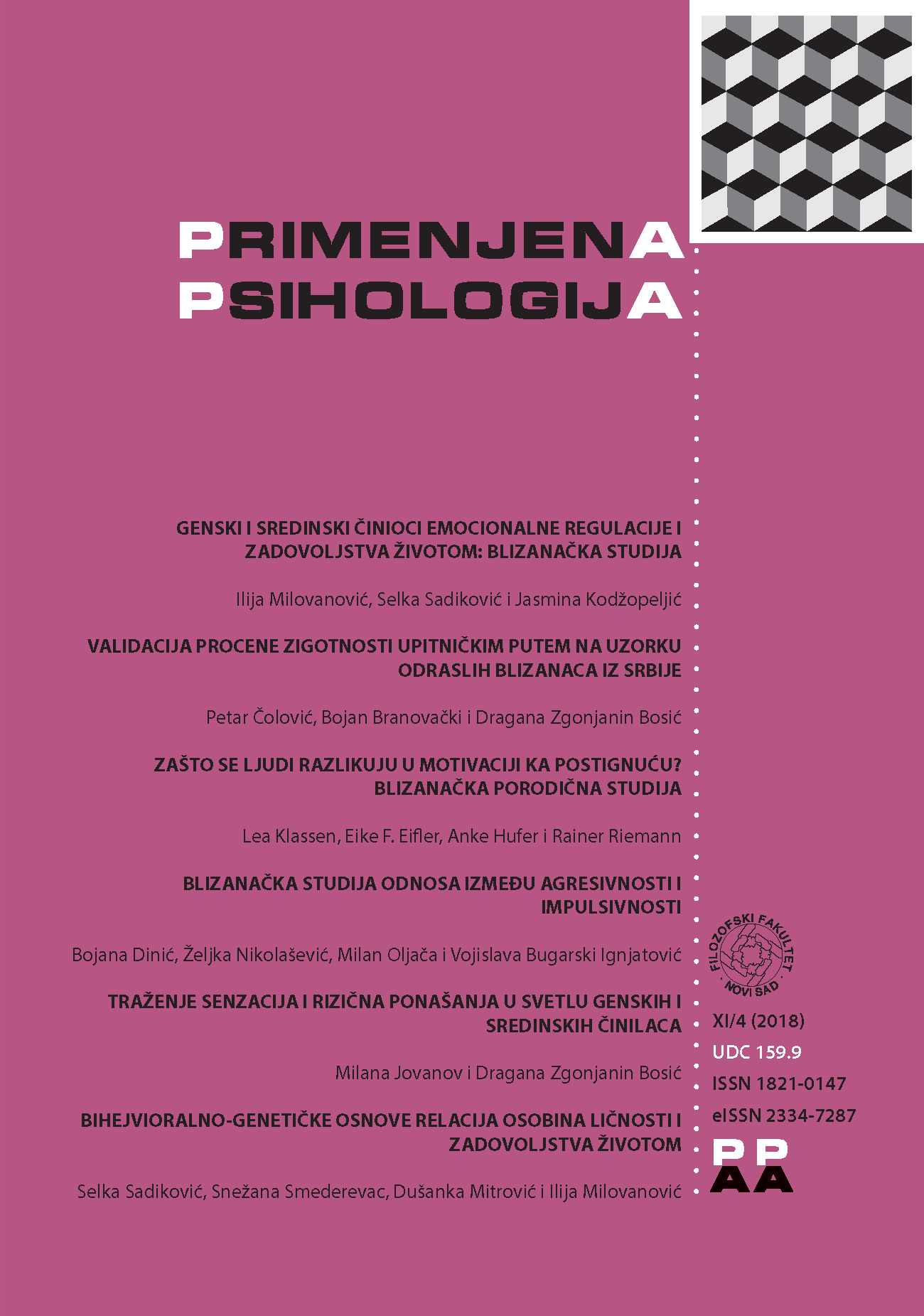TWIN STUDY OF AGGRESSIVENESS AND IMPULSIVENESS RELATIONSHIP
DOI:
https://doi.org/10.19090/pp.2018.4.451-470Keywords:
aggressiveness, biometric model, genetic and environmental effects, impulsiveness, twin studyAbstract
Aggressive and impulsive behaviors have shown sufficient genetic influences and high co-occurrence, thus the question is whether dispositions for these behaviors share unique genetic or environmental contributions. The aim of this research was to explore etiology of phenotypic relationships between aggressiveness and impulsiveness. More precisely, we tested which component of aggressiveness (affective, behavioral, or cognitive) shared the most underlying genetic and environmental influences with impulsiveness. There were applied Serbian adaptation of the Buss-Perry Aggression Questionnaire as a measure of three aggressiveness components, and Behavioral Activation System scale from the Revised Sensitivity Theory Questionnaire as a measure of impulsiveness, on a sample of 208 adult twin pairs (132 pairs were monozygotic). Results of a multivariate biometric method showed that the aggressiveness and impulsiveness could be explained by the common additive genetic (6% of impulsiveness and 16- 31% of aggressiveness components), and common non-shared environmental contributions (1% of impulsiveness and 11-47% of aggressiveness components), but those contributions were rather small. An affective component of aggressiveness (anger) showed the most genetic similarity with impulsiveness, indicating that the lack of anger and behavior regulation shared partially the same genetic basis. However, aggressiveness and impulsiveness contained a larger proportion of the specific genetic and environmental effects, which confirmed a distinction between these phenomena.







